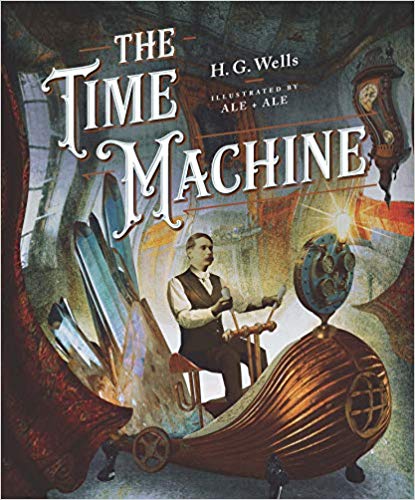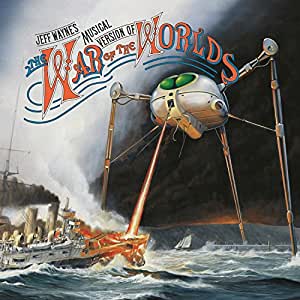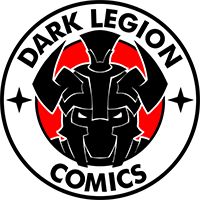Authorial Intent: H.G. Wells

REPOST: My day blowup in the wire. Enjoy some best of the Dark Herald.
In June of 1870, France had been the dominant land power in Europe since the reign of Louis XIV. Sure, it had had its ups and downs, and yes, granted, Napoleon was defeated (eventually) but look at the size of the alliance it took to take him down.
My point is this, France had been the big dog in Europe for so long, everyone’s worldview was built around it. You may not have drawn comfort from it, but it was something you could rely on to always be there. La Belle France ruled on land, Britannia ruled the waves, that was all there was to it. It was a background to your life, and you could more or less plan your entire life with this in mind.
Then in September of 1870, Prussia shifted the world’s paradigm without a clutch. Sedan was no temporary reversal, it was a shattering battle of annihilation that saw the destruction of the Grande Armee and the capture of Napoleon III. France was crushed, everyone knew it and in 1871 the German Empire was declared in Frankfort.
This was an absolutely shocking turn of events for everyone, everywhere. If great and powerful France could be beaten so handily, who couldn’t be defeated? Who would be next?
A writer and General by the name of George Tomkyns Chesney asked himself that very question and came up with the answer, Britain. He then wrote a novella titled The Battle of Dorking. It was what we would call today military science fiction.
It’s about the reminisces’ of a veteran, taking place decades after a successful invasion of Great Britain by an unnamed but German speaking Enemy.
From Infogalactic: “Demilitarisation and lack of training means that the army is forced to mobilise auxiliary units from the general public, led by ineffective and inexperienced officers. The two armies ultimately converge outside Dorking in Surrey, where the British line is cut through by the advancing enemy, and the survivors on the British side are forced to flee. The story ends with the conquest of Britain and its conversion into a heavily-taxed province of the invading empire. The British Empire is broken up, with only Gibraltar and Malta being kept by the victorious Germans. Canada and the West Indies are ceded to the United States, whilst Australia, India and Ireland are all granted independence, with Ireland entering a lengthy civil war as a direct result.”
This was shocking stuff in its day and set off a furor. How dare the man, an officer and a General write such scurrilous poppycock! Britain defeated? Absurd!
Yet everyone knew that they would have said the same thing about France only a year before.
The Battle of Dorking started off a cycle of invasion stories. They were quite the thing for a while although most are about as well read today as the Battle Dorking itself (Amazon Best Sellers Rank: #850,000 Paid in Kindle Store). However, there was one Dorking ripoff that has stood the test of time.
War of the Worlds by H. G. Wells.

Wells really didn’t come up with anything too original here. He stole like an artist. He took the Invasion trope and slapped it together with rabid public speculation about Lowell’s Martian Canals and created a new genre.
Honestly, the man gets more credit than he deserves. Wells for his part always stated that he wasn’t a science fiction writer, he was a Socialist.
The man wasn’t lying.
Wells did invent quite a few tropes along the way; the more advanced aliens, who of course were all Communists, (The First Men in the Moon). That Man is an animal that will revert to his animal state if given a chance (The Island of Doctor Moreau).
But in the main his works pretty much all reflect Marx’s roadmap for the future of all Mankind.
I suppose it was all good and hopeful stuff if you were a 19th Century Communist yourself but I found his writing to be pretty dour and from my own viewpoint rather pessimistic. The thing is that for the most part, Wells thought that the future was going to be bright because the future was, of course, Communism because that was the inevitable road where evolution would lead.
Although interestingly enough, his most dire view of the future followed that road to its logical conclusion was in his first book, the Time Machine.
There have been two film adaptations of that work. (Or at least two major adaptations)
The 1960 George Pal version and the 2002 I Forget Who version.
Of the two movies George Pal’s was closer to Wells narrative whereas the 2002 version was much closer to Well’s own progressivism.
First of all, if you’ve ever read the Time Machine you will know that it makes for very poor screenplay material. The conventions of Victorian fiction don’t lend themselves to film adaptation. Nonetheless, George Pal’s version made an effort to be close to the book narratively. Although with some major thematic changes.
The 2002 version seemed to regard Wells’ narrative as thumbnail to be ignored but was truer to the themes of the book.
(Please bear with me, the protagonist had different names in both movies and didn’t have a name at all in the book. Wells, for some reason, only referred to him as the Time Traveler so, I’m calling him TT.)
The motivation of TT was one of the biggest differences between the two films. In Pal’s version, TT stated that he felt he was born in the wrong time. He built his time machine to go to the time where he felt he was meant to live, the Future. Which is kind of strange when you think about it. Most people would pick some period in the past.
In the 2002 film, TT started off as an absent-minded professor. He goes to a park to propose to his girlfriend. She says, yes. And then she is killed by a mugger. At that point, TT is so broken-hearted he builds a Time Machine to go back in time and rescue her. While he keeps her from being shot, she dies moments later in a carriage accident.
The girlfriend is in no other version of this story.
2002 TT decides on the basis of one failure that she will always die no matter what he does. So, he sets off into the future to get answers.
I’ll skip over the trip to world of tomorrow. Both TTs sorta crash when they arrive.
Pal’s TT looks around for a bit, then finds a group of humans that are blonde-haired blue-eyed and toil not. He thinks, at first he’s found paradise.
2002 TT got KO’d when his ride crashed and was taken in by some tribe of Maori who have taken up the Wookie lifestyle and live in treehouses. This too is presented as paradise BUT the audience is meant to view it as a real paradise. The future is a human race that is entirely brown and lives in non-technological neo-lithic splendor. They are natural Communists.
Whereas Pal’s world of the Eloi turns out to be a false paradise. The TT has to rescue a drowning girl because none of her friends could be bothered to help her. He finds a library where the books have rotted to nothing but dust. The Eloi care nothing for the past and have no thought of the future because they have neither. They live in a state of languid lethargy because they are a herd of cattle.
This created a fundamental problem for me when I watched the 2002 version. I am so used to viewing the Eloi as cattle that I didn’t quite understand that the Maoris weren’t meant to be free-range cattle, they were meant to be an exploited people.
When the Pal’s Eloi were summoned to the abattoir, the Morlocks just sounded an air raid siren and the Eloi went mindlessly to their underground doom like the livestock they were.
The 2002 Maori were captured while running away by Morlock Orcs. Here is the hilarious part. The chief Morlock is the ultimate White Man Colonizer.
2002 TT defeats him after a fight. Then turns his time machine into an H-Bomb. And he goes off to live with the Wookie-Maori in Luddite anti-technological bucolic splendor. Nothing at all was done about the other Morlock colonies so, in the long run, the human race is doomed. Film over. This is very much in keeping with the dour and ultimately hopeless future Wells envisioned in the Time Machine.
Pal’s Time Traveler wakes the Eloi out of their bovine torpor, gets them to fight the Morlocks, and clearly is starting them on a road to some kind of civilization. There was an air of hopefulness at the end of the George Pal movie that was absent from Wells’s own work. One very intriguing element of the Pal version is right at the end. George has gone back to the future and taken three books with him.
What three books would you take with you if you were going to start a civilization? In 1960 everyone knew without question that one of them was the Bible.
Pretty much the last book H.G. Wells would have picked.

